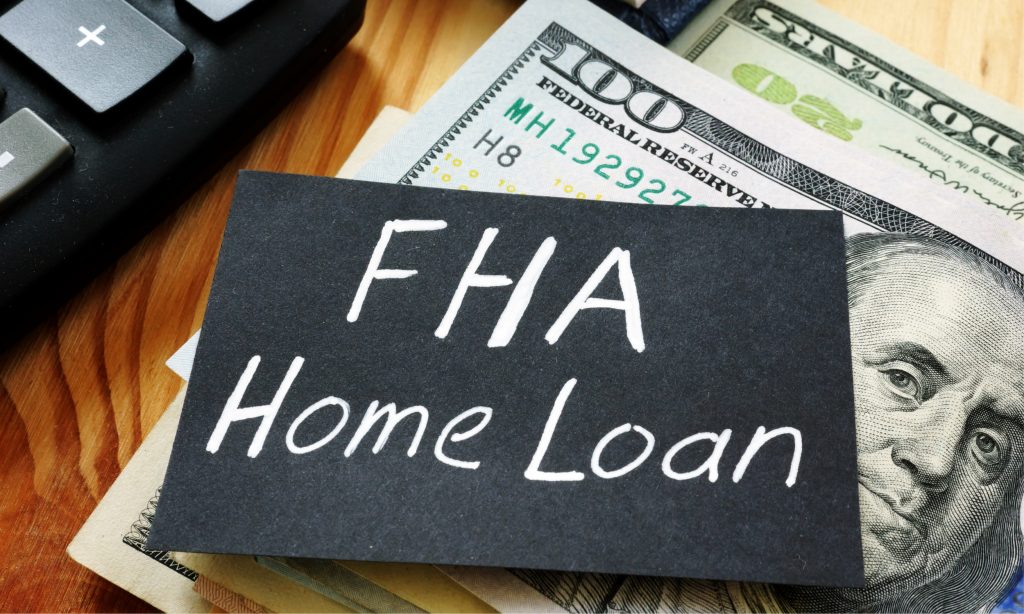What is the FHA?
FHA stands for Federal Housing Administration. The FHA is an agency within the Department of Housing and Urban Development, and they insure or back FHA loans.
What does “government-backed” mean?
A government-backed loan is one that is guaranteed by the government. This means the government protects the lender and covers its losses if you stop paying and default on your loan. This makes it less risky for the lender to give you money which is why an FHA is easier for borrowers to obtain.
What are the requirements and basic guidelines?
- Minimum down payment of 3.5%
- Lower Credit Score: As low at 580
- Higher DTI limit. In some cases, as high at 55%.
- Mortgage Insurance (referred to as Mortgage Insurance Premium or MIP)
- Property must be your primary residence and not an investment property.
- Some of your closing costs can be rolled into your loan.
- FHA lenders will consider borrowers who have a bankruptcy or foreclosure on record.
- Property types: Single-family, Condos, Townhomes, Multi-family, Manufactured

FHA Minimum Down Payment:
A down payment is a cash payment in the amount of a certain percentage of the home’s purchase price. An FHA loan requires a minimum of 3.5% down. The actual minimum down payment you can make will depend upon your credit score. The lower your credit score, the greater the risk the lender takes. The lender may require more than 3.5%. Whatever the final down payment is, you will need to have that percent of the purchase price in cash available to qualify for this loan. That cash must be in your account at the time of your application or, if you make a deposit after submitting your asset documents, it must be documented. That means there needs to be a paper trail tracing the money and from where it came.
FHA Minimum Credit Score:
Your credit score represents your credit history. It’s a three-digit number ranging from 300-850 that indicates your creditworthiness and how well you pay back your debts. FHA loan requirements have a minimum credit score of 580. This is among the lowest limit of any of the traditional loan programs. The higher your score the better. There are a several factors that go into determining your credit score including:
Credit score and DTI factor together. If you credit score is higher, then the lender may be willing to consider a higher DTI because your score indicates you pay your debts, and you’re less likely to default on the loan. Ultimately, it’s always good to do anything you can to improve your credit score.

FHA Debt-to-Income Ration Limit:
Your debt-to-income ratio (DTI) compares your monthly debt payment to your monthly gross (pre-tax) income and tells the lender the percentage of your income that goes toward your monthly debt payments (e.g., mortgage/rent, credit card payments, student loans, car loans). Obviously, the lower your DTI, the better. DTI is one of the most significant factors for lenders when qualifying you for a loan.
At 55%, FHA loans have one of the highest DTI limits. This means you may be able to obtain a loan even if 55% of your monthly income goes toward debt. As mentioned before, the higher your DTI, the higher your credit score needs to be. You can calculate your DTI before even applying for a loan.
FHA Mortgage Insurance:
FHA mortgage insurance is called Mortgage Insurance Premium (MIP). Mortgage insurance protects the lender in case you default on your loan. It goes directly to the lender and not toward your loan principle or interest.
You will pay mortgage insurance with an FHA loan for the entire loan term unless you make a down payment of more than 10%, and then you will pay insurance for 11 years. This is different than PMI and conventional loans which goes away after you’ve built 20% equity. There is an initial MIP charge (approximately 1.75% of your loan). Then there is also an annual MIP which is calculated based on several factors: The length of your loan, the loan-to-value ratio (LTV), the total amount of your mortgage, and the size of your down payment. The annual MIP payment ranges from 0.45% – 1.05% of the amount of the loan.
FHA Loan Amount Limits:
Loan limits are determined by county property values. The 2022 FHA limit is $420,680. FHA mortgage limits for specific areas are available online.
Summing it up:
If you’re a home buyer with a higher DTI and don’t have cash on hand for a large down payment, an FHA loan might be right for you. The requirements are less stringent which makes home ownership possible for borrowers with a credit score of 580. It’s important to note that because of the less restrictive requirements, FHA financing may be seen in a less favorable light by a seller. Work with your real estate agent to competitively position your offer.
Our loan comparison chart shows how FHA loans differ from conventional loans, jumbo loans, and other government-backed mortgages.


